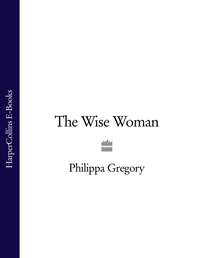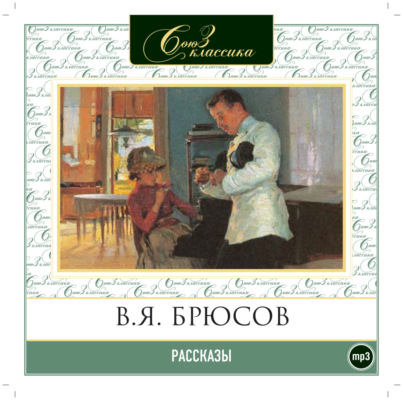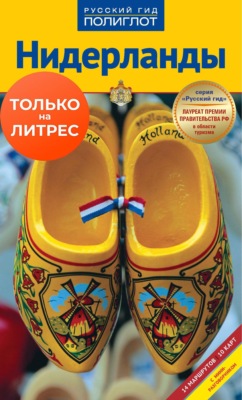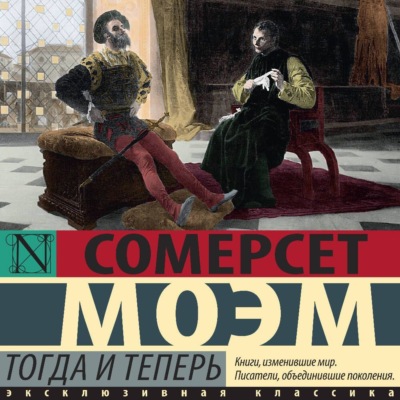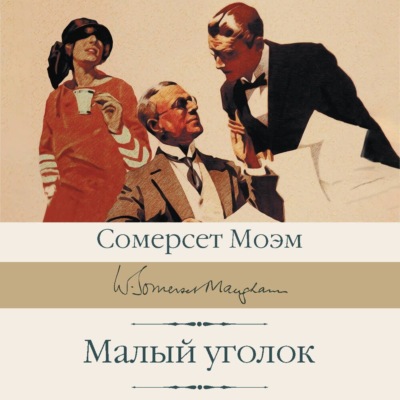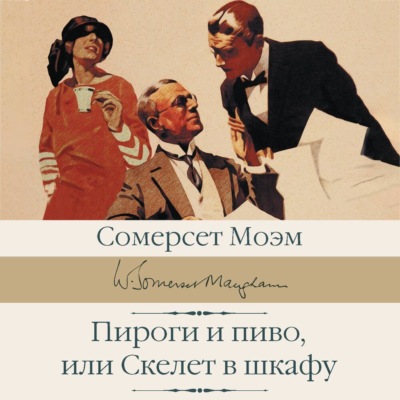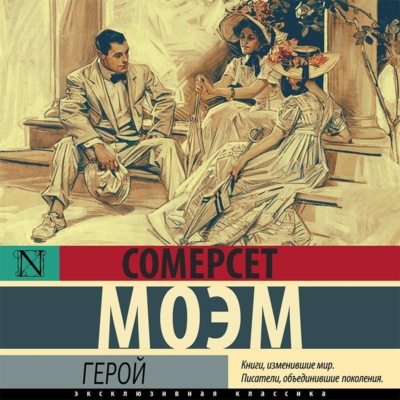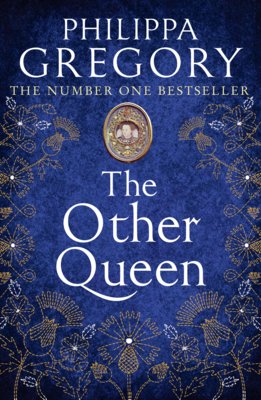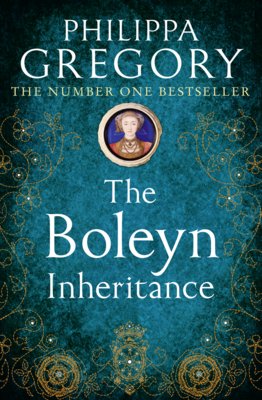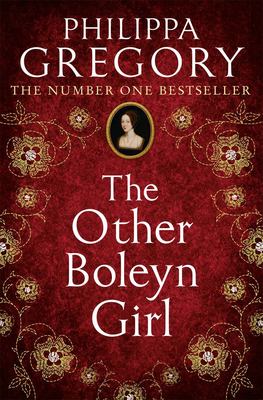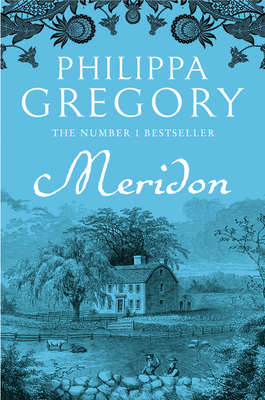Loe raamatut: «The Wise Woman»
PHILIPPA GREGORY
The Wise Woman

 Copyright
Copyright
This novel is entirely a work of fiction. The names, characters and incidents portrayed in it are the work of the author’s imagination. Any resemblance to actual persons, living or dead, events or localities is entirely coincidental.
Harper An imprint of HarperCollinsPublishers Ltd. 1 London Bridge Street London SE1 9GF
First published in Great Britain by Viking 1992
Copyright © Philippa Gregory Ltd 1992
The author asserts the moral right to be identified as the author of this work
A catalogue record for this book is available from the British Library
All rights reserved under International and Pan-American Copyright Conventions. By payment of the required fees, you have been granted the non-exclusive, non-transferable right to access and read the text of this ebook on-screen. No part of this text may be reproduced, transmitted, down-loaded, decompiled, reverse engineered, or stored in or introduced into any information storage and retrieval system, in any form or by any means, whether electronic or mechanical, now known or hereinafter invented, without the express written permission of HarperCollins ebooks
HarperCollinsPublishers has made every reasonable effort to ensure that any picture content and written content in this ebook has been included or removed in accordance with the contractual and technological constraints in operation at the time of publication
Source ISBN: 9780006514640
Ebook Edition © AUGUST 2010 ISBN: 9780007383344
Version: 2017-02-07
Contents
Cover
Title Page
Copyright
One
Two
Three
Four
Five
Six
Seven
Eight
Nine
Ten
Eleven
Twelve
Thirteen
Fourteen
Fifteen
Sixteen
Seventeen
Eighteen
Nineteen
Twenty
Twenty-one
Twenty-two
Twenty-three
Twenty-four
Twenty-five
Twenty-six
Twenty-seven
Twenty-eight
Twenty-nine
Thirty
Thirty-one
Thirty-two
Keep Reading
About the Author
By the Same Author
About The Publisher
One
In my dream I smelled the dark sulphurous stink of a passing witch and I pulled up the coarse blanket over my head and whispered ‘Holy Mary, Mother of God, pray for us’, to shield me from my nightmare of terror. Then I heard shouting and the terrifying crackle of hungry flames and I came awake in a rush of panic and sat up on my pallet and looked fearfully around the limewashed cell.
The walls were orange and scarlet, with the bobbing light of reflected flames, and I could hear yells of angry rioting men. I knew at once that the worst thing had happened. Lord Hugo had come to wreck us, Lord Hugo had come for the abbey, as we had feared he might come, since King Henry’s Visitors had found us wealthy and pretended that we were corrupt. I flung on my gown and snatched my rosary, and my cape, crammed my feet into my boots, tore open the door of my cell and peered into the smoke-filled corridor of the novitiate dormitory.
The abbey was stone-built, but the rafters would burn, the beams, and the wooden floors. Even now the flames might be licking upwards, under my feet. I heard a little whimper of fear and it was my own craven voice. On my left were the slits of open windows and red smoke swirled in through them like the tongues of hungry serpents licking towards my face. I peered out with watering eyes and saw, black against the fire, the figures of men crossing and recrossing the cloister green with their arms full of treasures, our treasures, holy treasures from the church. Before them was a bonfire and while I watched incredulously these Satan’s soldiers ripped off the jewelled covers and threw the fluttering pages of our books into the flames. Beyond them was a man on a big roan horse – black as death against the firelight, with his head thrown back, laughing like the devil: Lord Hugo.
I turned with a sob of fear and coughed on the smoke. Behind me were the single cells where the young novitiates, my sisters in Christ, were still sleeping. I took two steps down the corridor to bang on the doors and scream at them to awake and save themselves from this devil inside our gates and his fiery death of burning. I put my hand out to the first door, but the smoke was in my throat and no sound came. I choked on my scream, I swallowed and tried to scream again. But I was trapped in this dream, voiceless and powerless, my feet wading through brimstone, my eyes filled with smoke, my ears clogged with the shouts of heretics wrecking their way to damnation. I tapped on one door with a light hand. I made no sound.
No sound at all.
I gave a little moan of despair and then I picked up my skirts and I fled from my sisters, from my duty and from the life I had chosen. I scuttered down the breakneck spiral staircase like a rat from a burning hayrick.
The door at the foot of the stairs was barred, beside it was the cell where my mother in Christ, the Abbess Hildebrande slept. I paused. For her above them all, I should have risked my life. For all of my young sisters I should have screamed a warning: but to save Mother Hildebrande I should have burned alive and it would have been no more than her due. I should have banged her door off its hinges, I should have screamed out her name, I should never, never have left without her. She was my guardian, she was my mother, she was my saviour. Without her I would have been nothing. I paused for a moment – a bare half second I gave her – then I smelled smoke spilling under the refectory door and I flew at the bolts on the back door, rattled them open, and I was out in the west garden with the herb-beds around me cool and pale in the darkness.
I could hear the shouts from the heart of the abbey but out here in the gardens all was clear. I raced down the formal garden paths and flung myself into the slim shadow of the door in the outer wall and paused for one moment. Over the rapid thudding of my pulse I heard the noise of the coloured windows cracking in the heat and then the great crash as they were smashed by a thrown candlestick or silver plate. On the far side of the door I could hear the river flowing, splashing over the stones, showing me my way back to the outside world like the pointing finger of my own especial devil.
It was not too late, I was not yet through the door. For a second, for half a breath, I paused, tested my courage to go back – pictured myself hammering on the doors, breaking the windows, yelling for my mother, Mother Hildebrande, and my sisters, and facing whatever was to come at her side, with her hand in mine, and my sisters all around me.
I waited for no more than a moment.
I fled out of the little garden door, and slammed it shut behind me.
No one saw me go.
Only the eyes of God and His Blessed Mother were on me. I felt their gaze burning into my back, as I kilted up my skirts and ran. Ran from the wrecked chapel and the burning abbey, ran with the speed of a traitor and a coward. And as I ran, I heard behind me a single thin scream – cut off short. A cry for help from someone who had woken too late.
It did not make me pause – not even for a second. I ran as if the very gates of hell were opening at my heels, and as I ran, leaving my mother and my sisters to die, I thought of Cain the brother-killer. And I believed that by the time I came to Bowes village the branches of the trees and the tendrils of the ivy would have slashed at me as I ran – laid their stripes upon me – so that I would be marked forever, as Cain, with the curse of the Lord.
Morach was ready for her bed when she heard the noise at the door of the hovel. A pitiful scratch and a little wail like a whipped dog. She waited for long moments before she even stepped towards the threshold. Morach was a wise woman, a seer; many came to her door for dark gifts and none went away disappointed. Their disappointment came later.
Morach waited for clues as to her visitor. A child? That single cry had been weakly, like an ailing bairn. But no sick child, not even a travelling tinker’s brat, would find the courage to tap on Morach’s door during the hours of darkness. A girl thickening in the waist, slipped out while her heavy-handed father slept? A visitor from the darker world, disguised as a cat? A wolf? Some misshapen, moist horror?
‘Who’s there?’ Morach asked, her old voice sharp.
There was silence. Not the silence of absence; but the silence of one who has no name.
‘What do they call you?’ Morach asked, her wit quickened by fear.
‘Sister Ann,’ came the reply, as low as a sigh from a deathbed.
Morach stepped forward and opened the door and Sister Ann slumped into the room, her shaven head glinting obscenely in the guttering candle’s light, her eyes black with horror, her face stained and striped with smuts.
‘Saints!’ Morach said coolly. ‘What have they done to you now?’
The girl swayed against the door-frame and put out a hand to steady herself. ‘They’re gone,’ she said. ‘Mother Hildebrande, the sisters, the abbey, the church. All gone. Burned out by the young lord.’
Morach nodded slowly, her eyes raking the white, stained face.
‘And you?’ she asked. ‘Not taken for treason or heresy? Not seized by the soldiers, by the young Lord Hugo?’
‘No,’ she said softly, her breath like a sigh.
‘You ran,’ Morach said flatly, without sympathy.
‘Yes.’
‘Anyone see you? Anyone follow you here? Anyone coming behind to burn me out, as well as you and your saintly sisters?’
‘No.’
Morach laughed as if the news gave her especial, malicious, pleasure. ‘Ran too fast for them, did you? Too fleet of foot for the fat soldiers to follow? Faster than your sisters, I’ll be bound. Left them to burn, did you? While you hitched up your skirts and took to your heels? That won’t get you into the sacred calendar, my little martyr! You’ve lost your chance now!’
The girl bowed her head at the mockery. ‘May I come in?’ she asked humbly.
Morach stepped back, eyed her brightly. ‘To stay?’ she asked conversationally – as if the world were not black as pitch outside her door and a wind with rain at the back of it howling down the valley, gathering speed in the darkness.
Sister Ann nodded, dumb with weariness.
‘For long?’ Morach jibed.
She nodded again. The dark smears on her bare head and face gave her the look of an old striped plough ox.
‘Coming back to live here?’ Morach asked, covering old ground again for the pleasure of reviewing the landscape.
Ann raised her head. ‘Will you take me back?’ she asked. ‘My vows are broken – I was not obedient. I ran when the soldiers came – I am a traitor and a coward. My house is broken up and my sisters are dead or worse. I am nothing. I am nothing.’
She paused for a moment. ‘My mother is dead,’ she said very low. ‘Mother Hildebrande, the abbess. She will be in paradise this night, in paradise with all her daughters, with all her true daughters.’ Sister Ann shook her head dully. ‘This is the only home I have ever known except the nunnery. Will you take me back, Morach?’
Morach paused a moment. The girl was coming back, she had known it the moment she let her cross the threshold. But Morach was a woman whose skills led her to savour each moment.
‘I might,’ she said, consideringly. ‘You’re young and strong, and you have the Sight. You were my changeling child, given to me for my apprentice, and I would have made you the next wise woman after me but you chose the nuns. I’ve not replaced you. You could come back.’ She stared at the pale sullen face, the clear shape of the bones. ‘You’re lovely enough to send a man mad,’ she said. ‘You could be wed. Or we could sell you to a lover.’
Sister Ann kept her gaze down, her eyes on her muddy boots and the filthy rushes on the earth floor. Then she looked at Morach. Her eyes were not black but a dark, measureless blue. ‘I am the bride of Christ,’ she said bluntly. ‘I can wed no man. I can use no dark arts. There is nowhere for me to go, and I have broke my vows; but I was made a bride of Christ for life, and I am a bride of Christ still. I will be His until the day I die. I will never have any man. I will never use the skills of the devil. I am your apprentice no more.’
She turned her face from the smoking light and took one step towards the door. A sharp scud of rain rattled through the open door and into her face. She did not even blink.
‘Come in!’ said Morach irritably. ‘Away inside! We’ll speak of this more. We’ll speak of this later. But you can go no further tonight.’
She let Morach take her by the arm, lead her to the little fire in the centre of the room where the banked-down embers glowed under the peat.
‘Sleep here,’ Morach said. ‘Are you hungry? There’s porridge in the pot.’
She shook her head and, without another word, sank to her knees before the fire, her hand fumbling in her gown for her beads.
‘Sleep then,’ Morach said again, and took herself up a rickety ladder to the loft which spanned half of the room.
From that little eyrie she could watch the girl who did not sleep for a good hour, but kneeled before the cooling fire and prayed very earnestly, moving her lips and telling her beads. Upstairs, in the shelter of a dirty nest of torn blankets, Morach pulled out a bag of carved white bones, and in the light of the smoking tallow candle spilled out three of them and summoned what powers she possessed to see what would become of Sister Ann the nun, now that she was Sister Ann no more.
She laid them in a row and stared at them; her dark eyes narrowed to slits with pleasure.
‘Married to Lord Hugo!’ she said softly. ‘Or as good as! Fat eating, soft living.’ She leaned forward a little closer. ‘Death at the end of it,’ she said. ‘But there is death at the end of every road – and in any case, she should have died tonight.’
She picked up the bones and slid them back into the little ragged purse, hid them beneath her mattress of straw. Then she pulled a verminous bit of woollen shawl up around her shoulders, kicked off her rough clogs, and slept, smiling in her sleep.
Sister Ann was the first to wake in the morning, alert for the knock of the nun summoning her to lauds. She opened her eyes ready to call ‘Deo gratias!’ to the familiar ‘Benedicite!’ but there was silence. She blinked when she saw dark rafters and the weave of a thatched roof above her eyes instead of the plain, godly, white plaster of her cell. Then her eyes went darker yet with the sudden flooding-in of awareness of her loss and she turned her face and her bald head into the hank of cloth which served as a pillow and wept.
Softly, under her breath, she said her prayers, over and over with little hope of a hearing. There was no comforting chant of the prayers around her, no sweet strong smell of incense. No clear high voices soaring upwards to praise the Lord and His Mother. She had deserted her sisters, she had abandoned her mother the abbess to the cruelty and rage of the wreckers and to the man who had laughed like the devil. She had left them to burn in their beds and she had run like a light-footed fawn all the way back to her old home, as if she had not been a child of the abbey for the past four years, and Mother Hildebrande’s favourite.
‘You awake?’ Morach said abruptly.
‘Yes,’ replied the girl with no name.
‘Get some fresh water and get the fire going. It’s as cold as a saint’s crutch this morning.’
She got up readily enough and pulled her cape around her shoulders. She scratched the soft white skin of her neck. All around her neck and behind her ears was a chain of red flea bites. She rubbed at them, scowling, while she kneeled before the hearth. All that was left of the fire on the little circle of flints embedded on the earth floor was grey ash, with a rosy core. She laid a little kindling and bent down her bald head to blow. The curl of wood-shaving glowed red. She blew a little more strongly. It glowed brighter and then a red line of fire ate its way down the curl of wood. It met a twig, lying across it, and the light died as it smouldered sullenly. Then with a little flicker and a puff the twig caught alight, burned with a yellow flame. She sat back on her heels and rubbed her face with a grimy hand. The smell of the woodsmoke was on her fingers and she flinched from it, as if she smelled blood.
‘Get the water!’ Morach shouted from her bed.
She pushed her cold feet into her damp boots and went outside.
The cottage stood alone, a few miles west of the village of Bowes. In front of it was the dull silver of the River Greta, slowly moving without a ripple. The river rose and sank through great limestone slabs at this stretch, deep and dangerous in winter, patchy in drought. The cottage had been built beside one of the deeper pools which was always filled, even in the driest of summers. When Sister Ann had been a little girl, and everyone had used her given name of Alys, and Morach had been Widow Morach and well-respected, the children from the village used to come out here to splash and swim. Alys played with them, with Tom, and with half a dozen of the others. Then Morach had lost her land to a farmer who claimed that he owned it. Morach – no man’s woman, sharp-tempered and independent – had fought him before the parish and before the church court. When she lost (as everyone knew she would, since the farmer was a pious man and wealthy), she swore a curse against him in the hearing of the whole village of Bowes. He had fallen sick that very night and later died. Everyone knew that Morach had killed him with her snake-eyed glare.
If he had not been so thoroughly hated in the village it would have gone badly for Morach after that. But his widow was a pleasant woman, glad to be free of him, and she made no complaint. She called Morach up to the farmhouse and asked her for a poultice to ease her backache, and overpaid her many times to ensure that Morach bore no dangerous grudge. The old farmer’s death was explained easily enough by his family’s history of weak hearts. Morach took care not to boast.
She never got her land back. And after that day the village children did not come to play in the deep pool outside her door. Those visitors who dared the lonely road and the darkness came huddled in their cloaks, under cover of night. They left with small bunches of herbs, or little scraps of writing on paper to be worn next to the skin, sometimes heads full of dreams and unlikely promises. And the village remembered a tradition that there had always been a cunning woman in the cottage by the river. A cunning woman, a wise woman, an indispensable friend, a dangerous enemy. Morach – with no land to support her, and no man to defend her – nurtured the dangerous superstition, took credit and high payment for cures, and blamed deaths on the other local wizards.
Only Tom still came openly up the road from Bowes, and everyone knew he was courting Morach’s little foundling-girl, Alys, and that they would be wed as soon as his parents gave their consent.
For one long summer they courted, sitting by the river which ran so smoothly and so mysteriously down the deep crevices of the river bed. For one long summer they met every morning before Tom went to work in his father’s fields and Morach called Alys to walk out over the moor and find some leaf or some weed she wanted, or dig in the stony garden.
They were very tender together, respectful. On greeting and at parting they would kiss, gently, on the mouth. When they walked they would hold hands and sometimes he would put his arm around her waist, and she would lean her golden-brown head on his shoulder. He never caught at her, or pulled her about, or thrust his hands inside her brown shawl or up her grey skirt. He liked best to sit beside her on the river-bank and listen to her telling tales and inventing stories.
Her favourite time was when his parents were working in Lord Hugh’s fields and he could take her to the farm and show her the cow and the calf, the pig, the linen chest, the pewter and the big wooden bed with the thick old curtains. Alys would smile then, her dark eyes as warm as a stroked cat.
‘Soon we’ll be together,’ Tom would murmur.
‘Here,’ Alys said.
‘I will love you every day of my life,’ Tom would promise.
‘And we’ll live here,’ she said.
When Morach lost her fields and did not get them back, Tom’s parents looked higher for him than a girl who would bring nothing but a tumbledown shack and a patch of ground all around it. Alys might know more about flowers and herbs than anyone in the village, but Tom’s parents did not need a daughter-in-law who knew twenty different poisons, forty different cures. They wanted a jolly, round-faced girl who would bring a fat dowry of fields and perhaps a grazing cow with a weaned calf. They wanted a girl with broad hips and strong shoulders who could work all day in their fields and have a good supper ready for them at night. One who would give birth without fuss so that there would be another Tom in the farmhouse to inherit when they had gone.
Alys, with her ripple of golden-brown unbraided hair, her basket of leaves and her pale reserved face, was not their choice. They told Tom frankly to put her out of his mind; and he told them that he would marry where he willed, and that if they forced him to it he would take Alys away – even as far as Darneton itself – he would do it and go into service if needs be.
It could not be done. Lord Hugh would not let two young people up and off his land without his say-so. But Lord Hugh was an ill man to invoke in a domestic dispute. He would come and give fair enough judgement, but he would take a fancy to a pewter pint-pot on his way out, or he saw a horse he must have, cost what it may. And however generous he claimed to be, he would pay less than the Castleton butter-market price. Lord Hugh was a sharp man with a hard eye. It was best to solve any problems well away from him.
They ignored Tom. They went in secret to the abbess at the abbey and they offered her Alys. They claimed that the child had the holy gift of healing, that she was a herbalist in her own right, but dreadfully endangered by living with her guardian – old Morach. They offered the abbey a plump dowry to take her and keep her behind the walls, as a gift from themselves.
Mother Hildebrande, who could hear a lie even from a stranger – and forgive it – asked them why they were so anxious to get the little girl out of the way. Then Tom’s mother cried and told her that Tom was mad for the girl and that she would not do for them. She was too strange and unlike them. She had turned Tom’s head, perhaps with a potion – for whoever heard of a lad wanting to marry for love? He would recover but while the madness was on him they should be parted.
‘I’ll see her,’ Mother Hildebrande had said.
They sent Alys up to the abbey with a false message and she was shown through the kitchen, through the adjoining refectory and out of the little door to where Mother Hildebrande was sitting in the physic garden at the smiling western side of the abbey, looking down the hill to the river, deeper here and better stocked with fish. Alys had approached her through the garden in a daze of evening sunshine and her golden-brown hair had shone: like the halo of a saint, Mother Hildebrande had thought. She listened to Alys’ message and smiled at the little girl and then walked with her around the raised flower- and herb-beds. She asked her if she recognized any of the flowers and how she would use them. Alys looked around the walled warm garden as if she had come home after a long journey, and touched everything she saw, her little brown hands darting like harvest mice from one leaf to another. Mother Hildebrande listened to the childish high voice and the unchildish authority. ‘This one is meadowsweet,’ Alys said certainly. ‘Good for sickness in the belly when there is much soiling. This one looks like rue: herb-grace.’ She nodded solemnly. ‘A very powerful herb against sweating sickness when it is seethed with marygold, feverfew, burnet sorrel and dragons.’ She looked up at Mother Hildebrande. ‘As a vinegar it can prevent the sickness, did you know? And this one I don’t know.’ She touched it, bent her little head and sniffed at it. ‘It smells like a good herb for strewing,’ she said. ‘It has a clear, clean smell. But I don’t know what powers it has. I have never seen it before.’
Mother Hildebrande nodded, never taking her eyes from the small face, and showed Alys flowers she had never seen, herbs from faraway countries whose names she had never even heard.
‘You shall come to my study and see them on a map,’ Mother Hildebrande promised. Alys’ heart-shaped face looked up at her. ‘And perhaps you could stay here. I could teach you to read and write,’ the old abbess said. ‘I need a little clerk, a clever little clerk.’
Alys smiled the puzzled smile of a child who has rarely heard kind words. ‘I’d work for you,’ she said hesitantly. ‘I can dig, and draw water, and find and pick the herbs you want. If I worked for you, could I stay here?’
Mother Hildebrande put a hand out to Alys’ pale curved cheek. ‘Would you want to do that?’ she asked. ‘Would you take holy orders and leave the world you know far behind you? It’s a big step, especially for a little girl. And you surely have kin who love you? You surely have friends and family that you love?’
‘I’ve no kin,’ Alys said, with the easy betrayal of childhood. ‘I live with old Morach, she took me in twelve years ago, when I was a baby. She does not need me, she is no kin of mine. I am alone in the world.’
The old woman raised her eyebrows. ‘And no one you love?’ she asked. ‘No one whose happiness depends on you?’
Alys’ deep blue eyes opened wide. ‘No one,’ she said firmly.
The abbess nodded. ‘You want to stay.’
‘Yes,’ Alys said. As soon as she had seen the large quiet rooms with the dark wood floors she had set her heart on staying. She had a great longing for the cleanness of the bare white cells, for the silence and order of the library, for the cool light of the refectory where the nuns ate in silence and listened to a clear voice reading holy words. She wanted to become a woman like Mother Hildebrande, old and respected. She wanted a chair to sit on and a silver plate for her dinner. She wanted a cup made of glass, not of tin or bone. And she longed, as only the hungry and the dirty passionately long, for clean linen and good food. ‘I want to stay,’ she said.
Mother Hildebrande rested her hand on the child’s warm dirty head. ‘And what of your little sweetheart?’ she asked. ‘You will have to renounce him. You may never, ever see him again, Alys. That’s a hard price to pay.’
‘I didn’t know of places like this,’ Alys said simply. ‘I didn’t know you could be clean like this, I didn’t know that you could live like this unless you were Lord Hugh. I didn’t know. Tom’s farmhouse was the best I had ever seen, so that was what I wanted. I did not know any better.’
‘And you want the best,’ Mother Hildebrande prompted gently. The child’s yearning for quality was endearing in one so young. She could not call it vanity and condemn it. The little girl loved the herb garden as well as the refectory silver.
Alys hesitated and looked up at the old lady. ‘Yes, I do. I don’t want to go back to Morach’s. I don’t want to go back to Tom. I want to live here. I want to live here for ever and ever and ever.’
Mother Hildebrande smiled. ‘Very well,’ she said gently. ‘For ever and ever and ever. I will teach you to read and write and to draw and to work in the still-room before you need think of taking your vows. A little maid like you should not come into the order too young. I want you to be sure.’
‘I am sure,’ Alys said softly. ‘I am sure now. I want to live here for always.’
Then Mother Hildebrande had taken Alys into the abbey and put her in charge of one of the young novitiates who had laughed at her broad speech and cut down a little habit for her. They had gone to supper together and to prayers.
It was characteristic of both Alys and Tom that while he waited for her as the sun set and a mocking lovers’ moon came out to watch with him, Alys supped on hot milk and bread from fine pottery, and slept peacefully in the first clean pallet she had ever known.
All through the night the abbess waked for the little girl. All through the night she kneeled in the lowliest stall in the chapel and prayed for her. ‘Keep her safe, Holy Mother,’ she finished as the nuns filed in to their pews in sleepy silence for the first of the eight services of the day. ‘Keep her safe, for in little Alys I think we have found a special child.’
Mother Hildebrande set Alys to work in the herb garden and still-room, and prepared her to take her vows. Alys was quick to learn and they taught her to read and write. She memorized the solemn cadences of the Mass without understanding the words, then slowly she came to understand the Latin and then to read and write it. She faultlessly, flawlessly charmed Mother Hildebrande into loving her as if she had been her own daughter. She was the favourite of the house, the pet of all the nuns, their little sister, their prodigy, their blessing. The women who had been denied children of their own took a special pleasure in teaching Alys and playing with her, and young women, who missed their little brothers and sisters at home, could pet Alys and laugh with her, and watch her grow.
